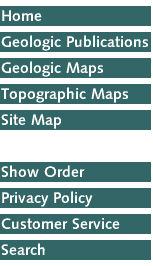

This report presents data associated with a series of five core holes drilled by rotasonic methods under contract from the North Carolina Geological Survey (NCGS) in January of 2006. These five cores were drilled on the North Carolina Coastal Plain from Alligator River, to just west of the Suffolk scarp in Plymouth, NC (fig. 1). The rotasonic core data are provided on CD-ROM and can be used in two ways:
HTML format, using the interactive database, provides the user with a means to point and click their way through images of the cores, descriptive logs, and supporting data and information;
Files that the user can open in their own image, text, or spreadsheet applications for whatever purpose they choose.
Although the data files can be accessed through links contained in the HTML report, the user can also navigate to them via their operating system. A later section of this document (Using the Interactive Database) will provide information on how to use the HTML format and describe how to access the files on this CD-ROM.
Core drilling was conducted under a multi-year project funded by the U. S. Geological Survey (USGS) Coastal and Marine Geology Program office located in Woods Hole, Massachusetts. Cooperators in the program who are involved in these cores include the USGS, NCGS, East Carolina University (ECU), the University of Delaware (UD), and the University of Pennsylvania (UPenn). The major objective of the project is to develop an understanding of the Quaternary geologic framework and modern sedimentary processes of northeastern North Carolina and the adjacent continental shelf out to about 9 km (5 nautical miles). Additional topics that will be investigated and have importance to management of the state’s coastal zone include: shoreline change (ocean and estuarine), sand resources for beach nourishment, storm impacts, record of sea level change, surface and ground water resources, and coastal habitats. By Jessica A. Pierson, Kathleen M. Farrell, John G. Nickerson, James S. Chapman, Amy N. Ward, Charles W. Hoffman and Noelle Lindsey. 2007.
|


